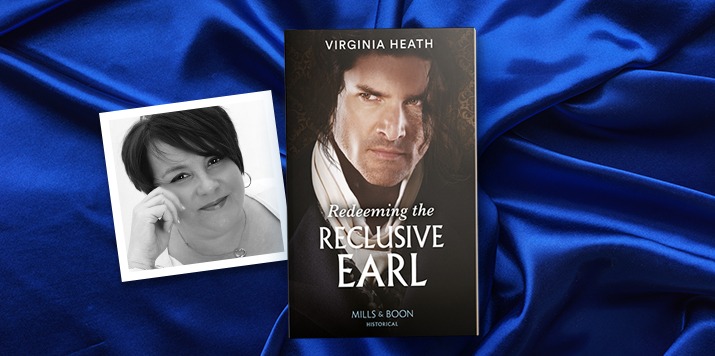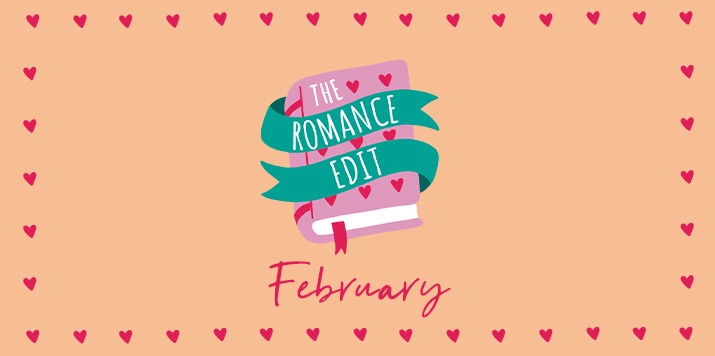Historical author Virginia Heath shares with us the reasons why she decided to create a neurodiverse heroine for her new book, Redeeming the Reclusive Earl.
*
Characters, like story ideas and plot twists, tend to come to me as I write. I’ve never been able to plan more than a few scenes ahead, and my heroes and heroines seem to grow organically of their own accord by the end of Chapter One. Occasionally I have to mull over the inner workings of one, but not often—which was what made Effie Nithercott, my quirky heroine in Redeeming the Reclusive Earl, so unusual. I had to ponder Effie a lot as the story progressed, although initially I assumed I had her down pat.
I say ‘initially’ because that soon changed after I gave the opening chapters to my little critiquing group.
To me, she was phenomenally intelligent, with a photographic memory which worked at baffling speed. She was also supremely driven. She couldn’t seem to shut her big brain off, and she’d made her work as an amateur archaeologist her everything because she was all alone in the world and desperately starved of human contact. Those who lived near her thought her unusual intelligence and her habit of saying exactly what popped into her head without giving it any forethought a tad odd. She was effusive and eccentric, she often wore odd shoes or mismatched earrings, she had different boundaries from her peers and she was unflinchingly tenacious as far as Lord Rivenhall’s intriguing ruins were concerned. And she never stopped talking.
Then one of my group, who just happens to be the mother of a special needs little boy, asked a question which flipped everything I’d thought on its head. ‘Is Effie on the autism spectrum?’
I paused, was about to deny it, then slowly nodded. ‘Maybe… Possibly… Probably.’
And then all my new heroine’s quirks suddenly made sense, because I had seen them time and time again.
As a former teacher, I’ve taught children with varying degrees of autism, and my experience of it has been that it is often the case that autistic girls present very differently from boys. Girls can be much harder to diagnose. They can mask some of the obvious signs—often so well that their autism is never detected.
I did some research to see if I had inadvertently created an autistic heroine, and was staggered by the results and the similarities. I discovered that Aspien females can be both extremely talkative and empathetic—just like Effie. And, like her, they are often eager to make friends but struggle to keep them. Other common traits my heroine shares include a well above average to genius level IQ, an excellent long-term memory, although they can can be unbelievably forgetful in the short term, and being disorganised and chaotic in some aspects of their life, yet brilliant and accomplished in others.
Effie needs constant intellectual stimulus or her brain overruns and sends her spiralling into anxiety—something I now know is also very much associated with the condition. What she doesn’t know about history is not worth knowing, and her mastery of languages and mathematics, and her ability to problem-solve is mind-boggling. So mind-boggling that some of the flippant deductions she tosses out after less than a second’s thought took me several hours to work out on paper!
And yet she cannot accurately read body language or facial expressions. A recurring trait in both sexes on that broad, fascinating and often misunderstood spectrum.
So, did I create an autistic heroine? I think I did—although not intentionally at first.
Have I done her justice? I hope so.
Because autism wasn’t known about at the time the book is set, I don’t reference it exactly—but the clues are there. Despite my editor knowing, I made a conscious decision not to make a big deal out of it. For me, Effie is Effie and that is that—and she will likely always be one of my favourite heroines because she truly is unique, lovable and fun. The fact that she also happens to be autistic is by the by—and, if we are truly ever going to be accepting of diversity in all its many facets, that is exactly how it should be. It has absolutely no bearing on her ability to be a well-rounded, passionate and believable heroine. In fact this book, and Effie in particular, have had nothing but good reviews, and so far only two readers have worked out that she’s a little bit different.
That makes me glad. Why? Because current thinking suggests that as many as one in every one hundred and fifty children have some level of autism, although huge swathes of those children will never be diagnosed, because it isn’t an exact science and the spectrum is as broad as it is wide—hence the reason it is referred to as a ‘spectrum’ in the first place. And if we assume that spectrum has been there since the human race first evolved, then heroines like Miss Euphemia Nithercott aren’t quite the anomaly we might misguidedly think they are. In which case, one in every one hundred and fifty heroines must be Aspien too. Perhaps they are…but we have failed to recognise it…
*
Pick up your own copy of Redeeming the Reclusive Earl by Virginia Heath here!



